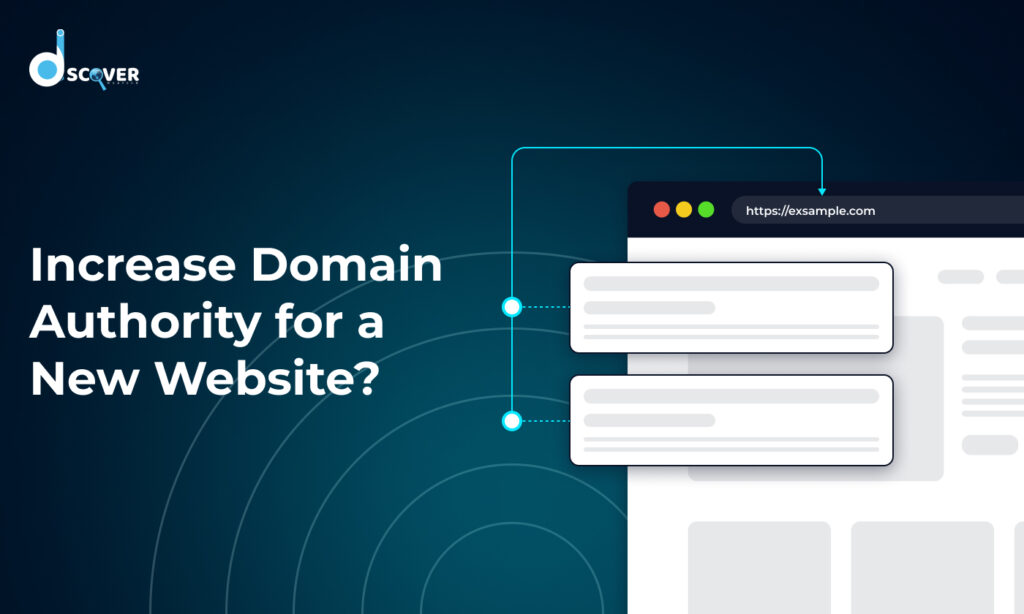
Just launched your website? That’s exciting! But the real challenge begins now — getting your site noticed by search engines. One of the key questions most beginners ask is: how do you increase domain authority?
Think of Domain Authority (DA) as a credibility score for your website. A higher score means your website is more likely to rank on search engines like Google. While DA isn’t a direct Google ranking factor, it’s still a reliable SEO metric for measuring your site’s potential and competitiveness — expert SEO reviews on this agree that it’s a valuable benchmark for growth.
In this post, we’ll guide you step-by-step through what Domain Authority is, how to check it, what a good score looks like, and how to boost it—especially if you’re starting with a brand-new site.
What Is Domain Authority?
Domain Authority is a score ranging from 1 to 100 developed by Moz. It predicts how well your website will rank in search engine results based on factors like backlinks, content quality, and overall SEO strength.
Websites with high Domain Authority usually perform better in search rankings. But don’t worry if your score is low right now—most new websites start at 1. The good news? You can steadily increase it with the right strategies.
What Is a Good Domain Authority Score?
Now, you might be wondering: what is good domain authority or more specifically, what is good domain authority score for a new website?
Here’s a quick breakdown:
- 1–20: Normal for new or low-activity websites
- 20–40: Growing authority, decent for small blogs and businesses
- 40–60: Competitive and trusted within your niche
- 60+: High authority, well-established websites
Your goal should be to reach or exceed the DA score of your competitors in your niche, rather than chasing a perfect 100.
How to Check Website Domain Authority
Wondering how to check website domain authority easily? You don’t need technical skills—just use a DA checking tool.
Here are some free tools to check your DA:
- Moz Link Explorer
- Ahrefs Website Authority Checker
- SEMrush Domain Overview
- Small SEO Tools DA Checker
To use these tools, simply enter your website URL. They’ll show your current DA score, backlinks, referring domains, and more.
How to Know Domain Authority Is Improving
Once you start working on SEO, you’ll naturally ask: how to know domain authority is increasing?
Here are a few indicators:
- Your DA score increases gradually (check monthly)
- Your backlinks grow, especially from reputable sites
- Your content ranks higher for target keywords
- Your organic traffic rises
It’s important to track progress regularly and compare your score with similar websites in your industry.
7 Beginner-Friendly Tips to Improve Domain Authority
Now let’s get into the core part—how do you increase domain authority step by step, especially if you’re new to SEO.
1. Publish High-Quality, Valuable Content
Content is the foundation of authority. You need to create content that answers real questions, solves problems, or provides unique insights.
To do this:
- Create in-depth blog posts, tutorials, or guides
- Use original research, case studies, or infographics
- Keep content updated to stay relevant
- Structure it well using headings and bullet points
When your content provides genuine value, people are more likely to link to it—helping improve domain authority naturally.
2. Build Backlinks from High-Authority Sites
Backlinks are one of the most important DA factors. You need links from websites that already have strong authority.
Here’s how you can earn them:
- Guest posting on relevant blogs
- Reaching out to websites that reference your topic
- Creating link-worthy content like industry reports or infographics
- Submitting your website to reputable directories
Avoid low-quality or spammy link sources. Google penalizes websites that buy or exchange links excessively.
3. Improve Your Technical SEO
Even if your content is great, poor technical SEO can stop your site from reaching its potential. Make sure your website is:
- Fast-loading on all devices
- Mobile-friendly (responsive design is a must)
- Secure (use HTTPS with an SSL certificate)
- Properly indexed in search engines
- Free from broken links and crawl errors
You can use tools like Google Search Console and Screaming Frog to audit your site’s technical SEO.
4. Optimize On-Page SEO
To improve domain authority, your on-page elements need to be optimized too. Here’s what to focus on:
- Include target keywords naturally in your title, headings, and body
- Write compelling meta descriptions and title tags
- Use descriptive alt text for images
- Maintain a clear URL structure
- Use schema markup for rich results
All of these elements help search engines understand your content better and improve crawlability.
5. Use Internal Linking Effectively
Internal links help connect one page of your website to another. They guide search engines through your site and help distribute authority.
For example:
- Link newer posts to older ones (and vice versa)
- Use keyword-rich anchor text
- Create content clusters around specific topics
This not only improves user experience but also strengthens your overall site architecture.
6. Promote Your Content on Social Media
While social shares aren’t a direct ranking factor, they help your content gain visibility—which can lead to more backlinks.
Here’s how to do it:
- Share your posts across platforms like LinkedIn, Twitter, Facebook, and niche forums
- Join groups and communities where your content fits
- Repurpose content into short videos, reels, or carousels
- Collaborate with influencers or thought leaders
Consistent sharing gets your content in front of more eyes and can generate natural links back to your site.
7. Guest Blog for Exposure and Backlinks
One of the fastest ways to build authority is through guest blogging. Not only do you gain exposure to a new audience, but you also earn a high-quality backlink.
To start:
- Identify blogs in your niche that accept guest posts
- Pitch valuable, original content ideas
- Include a link to your website in your author bio or body text (if allowed)
Over time, guest blogging helps you build relationships, authority, and domain strength.
How Long Does It Take to Increase Domain Authority?
Boosting DA takes time—usually several months of consistent effort. Factors like competition, niche difficulty, content quality, and backlink profile all play a role.
Start small. Focus on improving content and earning backlinks steadily. As your site grows, so will your DA.
Final Thoughts: Keep Growing Your Authority
To increase domain authority for a new website, it’s essential to consistently and correctly focus on the basics. Start by creating great content, building quality backlinks, and strengthening both technical and on-page SEO. Stay patient, track your progress, and with time and steady effort, you’ll see your domain authority rise. Remember, you don’t need a score of 100—just aim to outperform your competitors and provide genuine value to your audience.
Contact us to know our Digital Marketing Services
Check out our latest blog on ‘The Impact of AI on Email Marketing Careers’


